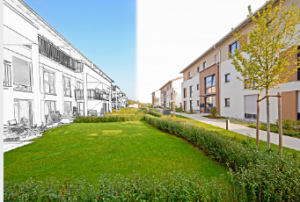The initial step in commercial property development Adelaide is finding an appropriate site for the project. It may involve considering factors like zoning regulations, location, and size constraints.
Once a site has been chosen, developers must contact the surrounding community. It is essential for several reasons, such as informing residents about upcoming initiatives.
Site Selection
 Site selection is an essential aspect of commercial property development Adelaide. It helps determine if a given parcel of land is worth purchasing or leasing and identifies any additional requirements that need to be fulfilled to develop the property.
Site selection is an essential aspect of commercial property development Adelaide. It helps determine if a given parcel of land is worth purchasing or leasing and identifies any additional requirements that need to be fulfilled to develop the property.
Additionally, it can assist a developer in understanding the overall cost of developing a property. For instance, they will know how much it will take to grade and level land and whether they can connect it to power and water sources.
Developers who fail to consider these factors could end up purchasing or leasing property that cannot meet their needs. That is why conducting thorough research before deciding on a property is essential.
Planning
Planning is essential to any successful project, and commercial property development is no exception. There are numerous elements to consider – from finding an ideal location and designing the perfect building to obtaining regulatory approval and ensuring construction goes off without a hitch. As such, planning this complex task requires expertise from start to finish.
Start your project on the right foot by engaging a reliable commercial real estate developer. They will guide you through every step and guarantee your venture has a secure foundation to grow. Furthermore, their team can answer any queries regarding your development plans.
Design
Designing a multi-million dollar complex is no small task. Achieving completion on schedule and within budget takes up most of the developer’s resources. To guarantee success, do your due diligence and identify the right people at the right time. Success lies in having an effective strategy, sound common sense and some luck along the way; here are some tips and tricks that will help get you there quickly and painlessly.
Construction
Construction is the stage of commercial property development when your project comes alive. It requires mobilising contractors, equipment and materials onto the site and securing a building permit.
Commercial real estate developers usually collaborate with a local general contractor to bring the development together. Throughout this stage, both parties communicate to guarantee the project remains on track and progresses smoothly.
The initial step in construction is creating a construction schedule. This document outlines what needs to be done, when and where, and outlining quality control standards.
Once the schedule is finalised, a pre-construction meeting will take place to review plans and guidelines. It helps guarantee that any issues arising during construction are addressed beforehand.
Lease Negotiations
Lease negotiations are an integral component of commercial property development Adelaide. They involve the landlord and lessee, with negotiations lasting anywhere from a day to several years.
Before signing a lease agreement, it’s essential to understand your business requirements. It will enable you to decide which terms are crucial and which are not.
Negotiating a lease can be intricate, so hiring a commercial real estate broker who can guide you through it is wise. They may also assist in crafting a compelling initial offer and negotiating with landlords for you the most advantageous deal.
No matter the type of commercial property you are interested in, writing a letter or other written communication is an effective way to start negotiations. It allows you to showcase why you are the ideal tenant for the space, explain your business venture and personalise the deal.
Property Management
Commercial property development involves managing non-residential properties like office buildings, shopping centres and industrial buildings. In addition, commercial property managers must perform various tasks and responsibilities such as advertising, marketing and lease negotiation, building maintenance, and tenant relations.
Asset management aims to enhance the value of commercial property through various strategies. These may include expense reduction, fulfilling deferred maintenance obligations, structuring advantageous lease arrangements and showcasing its advantages to prospective buyers.